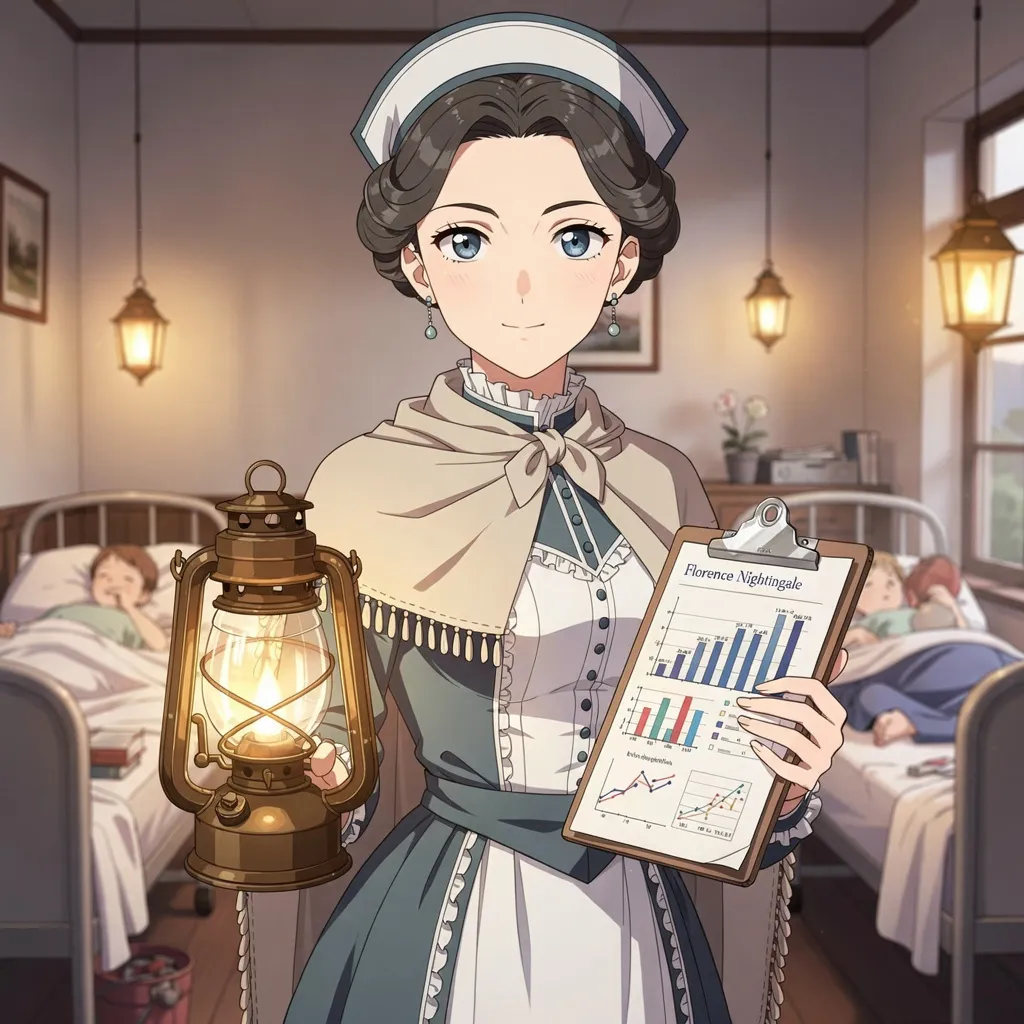
Florence Nightingale
1820-1910
She is famous for improving hospitals and creating modern nursing.
Early Life
Florence Nightingale was born in 1820 in Italy, but she grew up in England with her family. She was very smart and loved learning, especially math and reading.
When Florence was young, most girls were not expected to have jobs. They were expected to stay home, but Florence felt a strong wish to help sick people.
Wanting to Help Others
Florence believed it was her job to care for people who were ill. Her family did not agree at first, but Florence did not give up on her dream.
She studied nursing and learned how to take care of patients properly. At that time, hospitals were often dirty and unsafe places.
Helping Soldiers in the War
Florence became famous during the Crimean War in the 1850s. She went to help wounded soldiers in hospitals far from home.
She saw that many soldiers were getting sick because hospitals were dirty. Florence worked hard to improve cleanliness, fresh air, and healthy food.
The "Lady with the Lamp"
Florence was known as the "Lady with the Lamp" because she walked the hospital halls at night to check on patients. The soldiers felt comforted when they saw her.
Her care helped many people heal faster, and fewer soldiers died because of her changes.
Changing Hospitals Forever
After the war, Florence used math and charts to show how clean hospitals saved lives. This helped leaders understand why her ideas were important.
She helped start the first professional nursing school. This changed nursing into a respected job that still helps people today.
Legacy
Florence Nightingale’s work changed health care around the world. Nurses today follow many of the rules she created.
She showed that kindness, hard work, and smart thinking can make the world a healthier place.
🎉 Fun Facts
Florence loved math and used it to save lives.
She helped make handwashing important in hospitals.
Her birthday is celebrated as International Nurses Day.
She wrote many books and letters about health care.